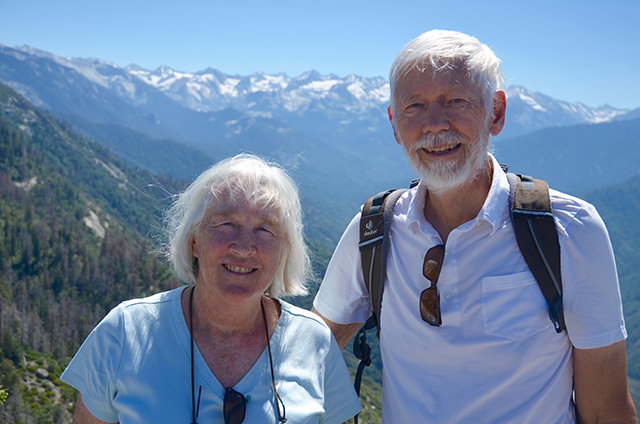The University of Alberta Faculty of Medicine & Dentistry's Transitional Retirement Implementation Program (TRIP) is an initiative developed in conjunction with central administration of the University of Alberta. The program is designed to find viable retirement solutions for faculty members who have comprehensive research work in progress and would like to take some time to gradually bring it to an end. The program addresses important challenges:
1. Finding viable retirement solutions for faculty members
2. Recruiting new faculty members and assisting with their start-up expenses
3. Retaining the productivity and mentorship of faculty
The program has received its first enrolments, and researchers at the Faculty of Medicine & Dentistry share their experience.
Brian Sykes, Department of Biochemistry

Sykes, who has been part of the University of Alberta for 43 years and was recently honoured with a symposium celebrating his accomplished career, enrolled in the TRIP program in April 2018.
"After working for 49 years, it's a transition. It's about accepting the fact that it's time to wind down your research," said Sykes. "Some people are happy retiring, but we are so attached to our work."
"I have two graduate students, a postdoctoral fellow and a technician in my lab that need to finish up. I'm happy to have some more time to do that. Overall I'm very happy with the program."
Sykes met with Charles Holmes, his department chair, and decided to enrol in TRIP for the three-year program, so his salary could be used to hire new faculty members while he kept some funding for his research and most of his benefits.
"I'm rather enjoying this time. I still do about the same amount of science, but other tasks disappear, like teaching and administrative duties and reports. Some people may see being removed from faculty affairs as a downside, but not for me. I just enjoy doing my research."
Sykes currently spends time in his lab and occasionally travels to London to meet with colleagues with whom he still does collaborative work. According to him, the TRIP program will be an opportunity for him to address research questions he always wanted to tackle, but didn't do in the past concerned about whether or not he would be successful.
"TRIP allowed me to finish up my research and opened new doors as well. I would recommend it 100 per cent."
Jean Vance, Department of Medicine, and Dennis Vance, Department of Biochemistry

The couple have been working at the University of Alberta since 1986, and decided to enrol in the TRIP program in January 2017 to retire together.
"We were getting older and decided we should start winding down," said Dennis Vance. "We have been working in research for over 50 years, so it's not easy to just walk out the door. The TRIP opportunity came in a very good way to fade out our research slowly and the Faculty gives us a small research allowance to continue. That's what really interested us."
"Also the TRIP program was focusing on the research aspect," added Jean Vance. "We don't really have to spend a lot of time doing things like administrative duties and teaching. We can just continue with our research and gradually wind it down, and perhaps hand it to other junior colleagues, so they can continue with it."
"Another reason I wanted to take this program is that our salaries could be used to recruit new, younger faculty members. To me it was a very attractive idea because I think there needs to be higher recruitment."
According to the Vances, everything was well-explained to them and they decided to take the three-year retirement option. Both scientists say they would recommend the program to other researchers considering retirement options.
"I guess at the beginning the only challenge was not continuing with our work the way we were always doing it, full-time. We started to slow down more this year," said Jean.